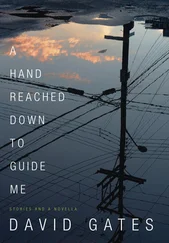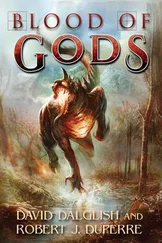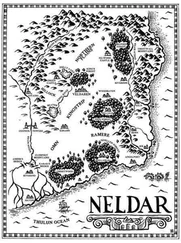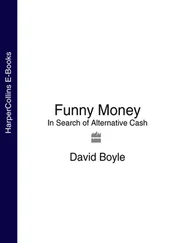David Gates - Blood Money
Здесь есть возможность читать онлайн «David Gates - Blood Money» весь текст электронной книги совершенно бесплатно (целиком полную версию без сокращений). В некоторых случаях можно слушать аудио, скачать через торрент в формате fb2 и присутствует краткое содержание. Жанр: Ужасы и Мистика, на английском языке. Описание произведения, (предисловие) а так же отзывы посетителей доступны на портале библиотеки ЛибКат.
- Название:Blood Money
- Автор:
- Жанр:
- Год:неизвестен
- ISBN:нет данных
- Рейтинг книги:5 / 5. Голосов: 1
-
Избранное:Добавить в избранное
- Отзывы:
-
Ваша оценка:
- 100
- 1
- 2
- 3
- 4
- 5
Blood Money: краткое содержание, описание и аннотация
Предлагаем к чтению аннотацию, описание, краткое содержание или предисловие (зависит от того, что написал сам автор книги «Blood Money»). Если вы не нашли необходимую информацию о книге — напишите в комментариях, мы постараемся отыскать её.
Blood Money — читать онлайн бесплатно полную книгу (весь текст) целиком
Ниже представлен текст книги, разбитый по страницам. Система сохранения места последней прочитанной страницы, позволяет с удобством читать онлайн бесплатно книгу «Blood Money», без необходимости каждый раз заново искать на чём Вы остановились. Поставьте закладку, и сможете в любой момент перейти на страницу, на которой закончили чтение.
Интервал:
Закладка:
But this was an abstraction and an excuse, Placido Geist argued, not the situation as it obtained on the ground. If there were a greater social good in Kick Emory’s demise, Colonel Benét was using it to mask a personal vendetta.
“He wouldn’t be the first,” Lamar said.
“No, nor will he be the last, but a better man would own up to the fact that his motives weren’t pure.”
“Absolute moral certainty is always suspect,” Lamar agreed.
“What happened last month over in Dime Box?”
“Oh, hell,” the bounty hunter said, looking awkward. “That was a sorry piece of work, I’d be the first to admit.”
“And now the shoe’s on the other foot.”
“When did I hire you to be my conscience?”
Lamar looked at him over the rims of his spectacles. It was a gaze he’d practiced when he was still active on the bench, and it signified that the judge wasn’t to be trifled with.
The incident he was referring to did Placido Geist little credit. He’d killed a man based on circumstantial evidence — no more than his instinct and experience. That he’d been right to do so, his instinct and experience being more than most men’s, cut little ice with the young man’s father, Farragut Hagerty, a rancher of no small influence in East Texas*. Placido Geist felt scant remorse, but the matter was proving troublesome.
[Footnote: * See”The Cottonwoods,”AHMM, October 2006.]
“I hear old man Hagerty’s put up bounty money for you,” the judge said.
“I hear the same,” Placido Geist admitted.
“You kill a man’s son, and he puts a price on your head. Kick Emory kills a man’s son, and that man puts a price on his.”
“You don’t appreciate the distinction,” Placido Geist replied tartly. “Kick Emory fell off a whorehouse roof. Derek Hagerty threw down on me and I defended myself.”
This was shading the truth, some. He’d in fact goaded the Hagerty kid into gunplay. He knew Derek Hagerty to be complicit in a lynching, but having no proof, served up his own equity.
“If you don’t mind my saying so,” the judge retorted, “any fair-minded observer would remark the similarities. Two men’s sons are dead. Both of those men have money and political connections. Both of those men seek an accounting. Both of those men have a quarry in their sights.” The judge took a deep breath, stifling his impatience with an old friend. “I’m not comparing you with Kick Emory,” he said. “I’m simply suggesting that you have a motive as transparent as Colonel Benét’s.”
“Which is?”
“You don’t want to see Emory’s death bought and paid for.”
“Somebody has to catch him first.”
“But it won’t be you, by your own choice.”
“Benét will hire another man.”
“He won’t hire a better.”
“That remains to be seen,” Placido Geist said. “Any number of men will hunt their own kind if the price is right.”
The judge had a sudden presentiment. He realized he should have seen it from the start. “You intend to find Emory first.”
“I intend to beat Colonel Benét to his prize, yes.”
The judge shook his head. “If this weren’t fast becoming a farce, it would soon be tragedy,” he said.
“No,” Placido Geist told him. “A tragedy, defined, is the drama of a man brought low by a flaw in his own character. This may be an unhappy or an unfortunate circumstance, an accident waiting to happen, perhaps, but by no sensible measure can it be misnamed a tragedy.”
The judge didn’t answer. Tragedy, he also well knew, turns on fated moments. If so, the question then was whose.
In 1853, the Gadsden Purchase relocated the border of the United States, moving it some sixty miles south of the Gila River to its present-day boundary with Chihuahua and Sonora. This negotiation might be characterized as a conciliatory gesture to Mexico, which had lost all of California and what was now the American Southwest five years before that, in a war of adventure still bitterly resented. For a price of ten million dollars, about 45,000 square miles changed hands; most of it wound up in what was now Arizona, the tag-end left over for New Mexico. The shape of this arbitrary line on a map, falling just below the Thirty-Second Parallel, was geometric: It followed none of the natural contours of the land, and in New Mexico it was known as the Bootheel.West of El Paso, the main Southern Pacific route cut up toward Deming. The rail line along the border was a feeder road for livestock and local freight, stop-and-go, twice weekly.
Placido Geist chose to go saddleback on a hired mount and tack. The buckskin gelding was a damn decent horse, he discovered, after making fifty miles the first day, which was asking a little much from both man and animal. They got to Columbus just as the light was failing.
Columbus, New Mexico, was the site of a cross-border raid by Pancho Villa’s guerrilla troops in 1916, two years previous. Placido Geist dismounted in front of the shuttered railway station. The depot clock had stopped a bullet that March morning of Villa’s attack. Its inner workings were jammed fast, the hands stuck at 4:20 A.M.
The bounty hunter went to find a place to stay, for himself a bath, if possible, and for the horse, grain and a rubdown.
He pushed on the next day.
The country was hard, unwatered, a desert landscape. Towns were few. He was making for Antelope Wells, a border crossing. Word had it that Kick Emory was holed up there. But if word had it, Placido Geist wouldn’t be the only one who’d heard.
They made another forty miles. The buckskin was game enough. The bounty hunter knew he wasn’t doing the horse any favors, though. Placido Geist wouldn’t last much longer than a dead horse. He camped on the trail, resting the gelding that night and walking him the best part of the following day before turning due south to cross the Hatchets. Antelope Wells was situated about halfway between the Alamo Hueco and the Continental Divide. It was another two days’ ride to the border. He had to conserve the horse’s energies, as well as his own, but he imagined time was already against him.
The town numbered no more than four hundred residents, although on market days it probably drew some itinerant custom. The buildings were by and large of one story, mud-plastered adobe or sod, there being little in the way of indigenous timber for framing lumber or planking. Although it was styled a Port of Entry on the ordnance maps, there was no sister settlement across the border, probably because there was no river between and no viable water source. Antelope Wells was orphaned, an accident not of geography but of the Gadsden Treaty. It had no good reason for being there.
There was, however, a telegraph office, the twentieth century gaining ground, and an Army garrison, manned at less than company strength, perhaps forty officers and men, all told, detailed to patrol a trackless stretch of border that invited casual depredations, given the unruly state of the insurgency in Mexico. The largest establishment in Antelope Wells called itself the Longhorn, a saloon with gaming tables, the few whores drawing most of their idle custom from the cavalry post.
It was the only place to rent a room. It was also where Placido Geist expected to find the man Emory, although why Emory would choose this flyblown outpost was a puzzle. The place to lose yourself was somewhere well trafficked, busy with nameless transients, both opportunists and their prey, not some town on the edge of nowhere where you couldn’t go unnoticed. But perhaps Emory had confused isolation with secrecy, an easy mistake.
The bounty hunter was to realize his own mistake early that evening.
He took note of the man first thing, of course. There was an easy physical confidence, the mark of a practiced gunhawk. Not a swagger, more of a completeness, absolutely aware of the immediate environment. He’d come in through the back, where the whores had their cribs, but he didn’t have the look of a man dulled by recent and hurried sex. He had more the sleepy aspect of a tiger pretending to ignore a staked goat.
Читать дальшеИнтервал:
Закладка:
Похожие книги на «Blood Money»
Представляем Вашему вниманию похожие книги на «Blood Money» списком для выбора. Мы отобрали схожую по названию и смыслу литературу в надежде предоставить читателям больше вариантов отыскать новые, интересные, ещё непрочитанные произведения.
Обсуждение, отзывы о книге «Blood Money» и просто собственные мнения читателей. Оставьте ваши комментарии, напишите, что Вы думаете о произведении, его смысле или главных героях. Укажите что конкретно понравилось, а что нет, и почему Вы так считаете.











